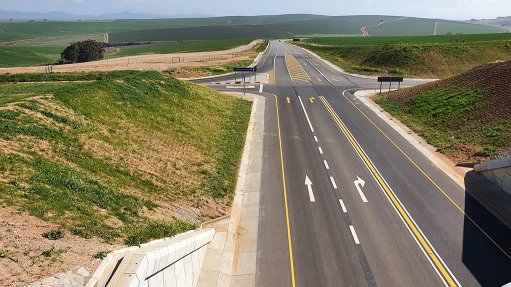Struggling fuel retail sector needs to transform, says FRA
With margin erosion owing to poor implementation of the Regulatory Accounts System (RAS) leading to fuel retail outlets under-recovering about 12c a litre and alternatives to fuels being driven by customer demand and the global emissions reduction agenda, the fuel retail industry must transform and add new services, says Fuel Retailers Association (FRA) CEO Reggie Sibiya.
The move to electric and hybrid mobility is starting to become a reality and the Covid-19 pandemic fast-tracked the move to a Fourth Industrial Revolution (4IR) owing to the changing economic and consumer landscape.
“Covid-19 impacted the industry, with volumes dropping by 80% and many operators pleading for rental relief from landlords, bank holidays and with very little or no support from government.
"During the July riots and looting, the sector lost more than R300-million to looting and property damage; the combined Covid-19 and looting cost the industry billions of rands in revenue and lost tax collection,” he points out.
The picture today is one of economic challenges coupled with declining volumes and eroding margins.
Fuel is a major part of fuel retail businesses, contributing up 60% to 80% of revenue, depending on location. Urban sites have progressively done more convenience and other supplementary streams, more than in rural areas.
Margins are fixed, but pump prices change every month.
“Margins are determined by the Mineral Resources and Energy Minister and, once determined, they are fixed. If operational elements are not in the margins, operators are under-recovering and will take the strain.
“With no relativity between fixed margin and the movement of prices, most of the operating expenses are linked as a percentage of the pump price so when the pump price goes up, the operational expenses also go up yet the margin is fixed annually. This leads to the erosion of the operational margin at the end of the day which is not a good or healthy situation to be in,” Sibiya explains.
However, fuel remains a very strategic resource, albeit capital-intensive owing to the nature of its assets. The industry is important and labour intensive, employing more than 83 000 people and with more than 4 500 small, medium-sized and microenterprises running fuel retail operations. The industry remains central to providing fuel for the economy and people, at least for the immediate future, says Sibiya.
“Creativity needs to come in to figure out how we meet those needs as and when they arise. This is where convenience retailing comes in and how to position ourselves when electric vehicles become a reality.
“With this scenario playing out on a daily basis, service station owners need to add convenience stores, electric or hybrid vehicle charging spots, fast food and beverages, car washes, car and trailer hire, laundry services or even potentially pharmacies in the future to make ends meet,” he suggests.
Meanwhile, he says the looming issue of the 4IR and how it will impact the training of the labour force is a challenge.
He highlights that Covid-19 has forced and fast-tracked this transition, but the industry is not ready for it.
“How we train young people for future 4IR jobs when other jobs become redundant is one of the challenges facing the industry,” he adds.
Further, the Petroleum Products Act and its regulatory challenges include the proliferation of service stations and rampant illegal trading, which is threatening the sustainability of existing service station businesses.
“If it is not addressed seriously, we may as well forget about the survival of the fuel retailing business,” he says.
Comments
Press Office
Announcements
What's On
Subscribe to improve your user experience...
Option 1 (equivalent of R125 a month):
Receive a weekly copy of Creamer Media's Engineering News & Mining Weekly magazine
(print copy for those in South Africa and e-magazine for those outside of South Africa)
Receive daily email newsletters
Access to full search results
Access archive of magazine back copies
Access to Projects in Progress
Access to ONE Research Report of your choice in PDF format
Option 2 (equivalent of R375 a month):
All benefits from Option 1
PLUS
Access to Creamer Media's Research Channel Africa for ALL Research Reports, in PDF format, on various industrial and mining sectors
including Electricity; Water; Energy Transition; Hydrogen; Roads, Rail and Ports; Coal; Gold; Platinum; Battery Metals; etc.
Already a subscriber?
Forgotten your password?
Receive weekly copy of Creamer Media's Engineering News & Mining Weekly magazine (print copy for those in South Africa and e-magazine for those outside of South Africa)
➕
Recieve daily email newsletters
➕
Access to full search results
➕
Access archive of magazine back copies
➕
Access to Projects in Progress
➕
Access to ONE Research Report of your choice in PDF format
RESEARCH CHANNEL AFRICA
R4500 (equivalent of R375 a month)
SUBSCRIBEAll benefits from Option 1
➕
Access to Creamer Media's Research Channel Africa for ALL Research Reports on various industrial and mining sectors, in PDF format, including on:
Electricity
➕
Water
➕
Energy Transition
➕
Hydrogen
➕
Roads, Rail and Ports
➕
Coal
➕
Gold
➕
Platinum
➕
Battery Metals
➕
etc.
Receive all benefits from Option 1 or Option 2 delivered to numerous people at your company
➕
Multiple User names and Passwords for simultaneous log-ins
➕
Intranet integration access to all in your organisation


















